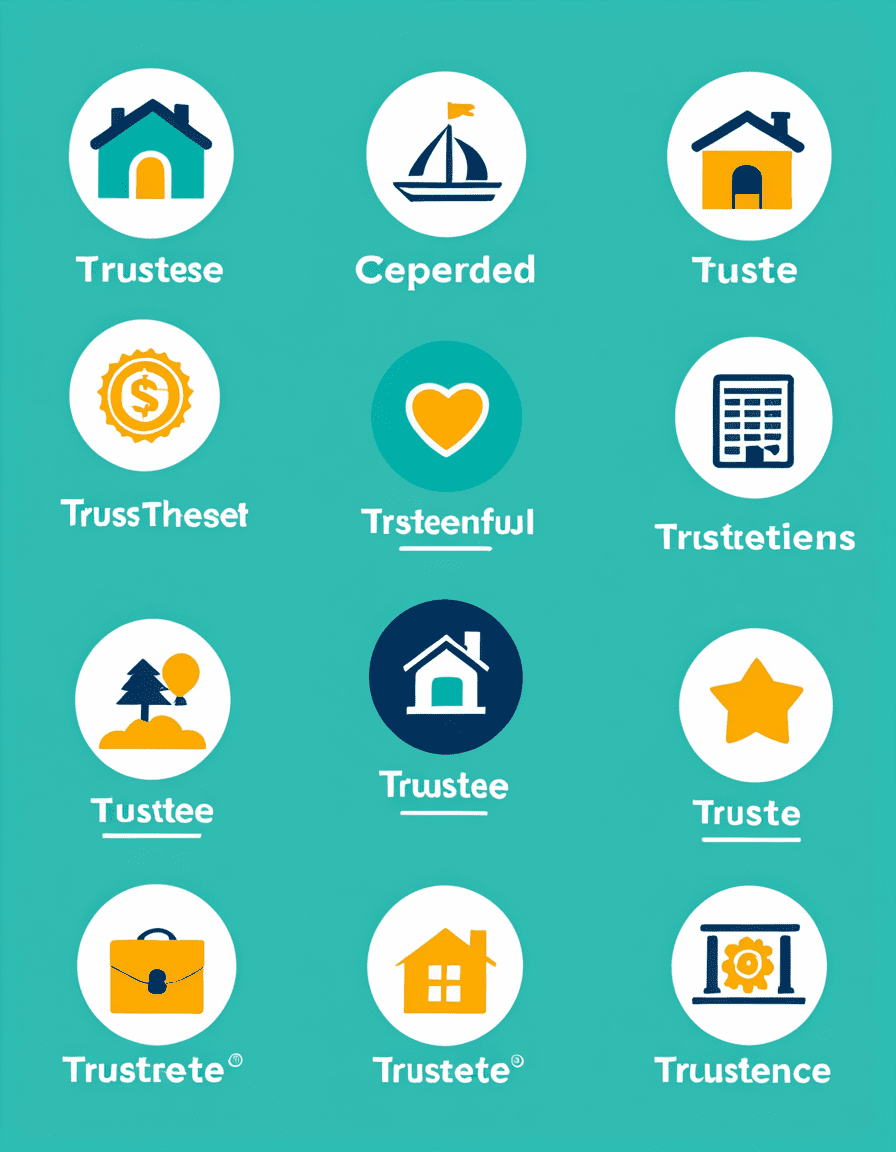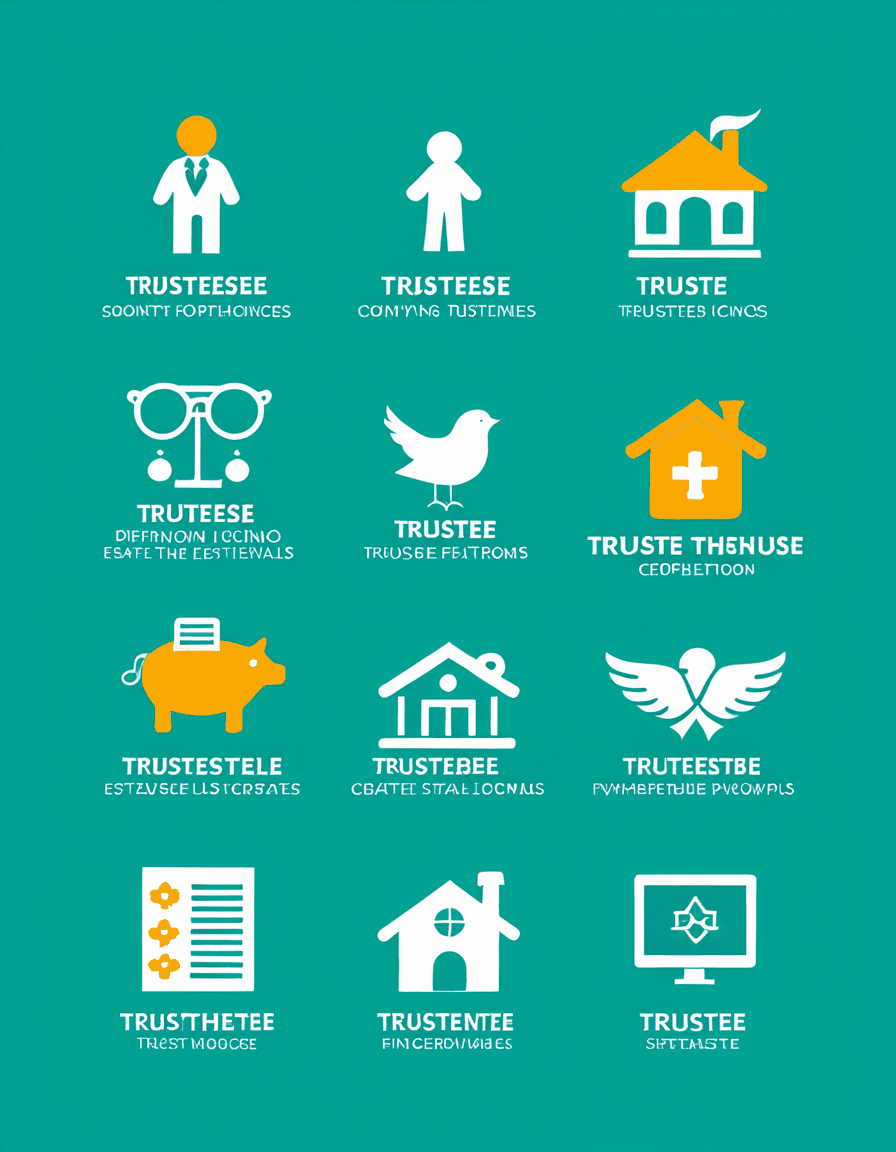Estate management can feel overwhelming, but one role stands out as particularly vital: the trustee. Understanding the trustee definition equips individuals with the knowledge to navigate estate planning effectively. A trustee is an individual or entity entrusted to oversee and manage assets for the benefit of others, according to the terms set forth in a trust document. This article explores the intricacies of the trustee’s role and why it matters so much in estate management.
To put it plainly, trustees have a crucial duty. They not only safeguard assets, but they also ensure that beneficiaries receive their rightful shares according to the trust’s instructions. Understanding who could serve in this role, and the responsibilities they undertake, can empower individuals when making estate planning decisions. It’s all about laying the groundwork for a smooth transition of wealth and intentions, securing your family’s future.

Top 5 Responsibilities of a Trustee in Estate Management
1. Asset Management and Investment
One of the primary duties of a trustee involves managing the trust’s assets and making sound investment decisions aimed at growth. Let’s say a trust includes real estate; the trustee would have to decide whether to sell those properties or invest in renovations to boost their value. Take the late philanthropist Joan Kroc, for instance. She established a charitable trust that tasked her trustees with wisely growing her estate to support various causes. Their ability to strategically handle investments allows trusts to thrive over time.
2. Compliance with Trust Terms
Trustees must strictly adhere to the specific terms outlined in the trust document. This is vital for honoring the grantor’s intent. A notable example involves the estate of singer Aretha Franklin. Her handwritten will underwent significant scrutiny as the trustees were expected to manage her estate per her recorded wishes. Such situations illuminate the importance of diligence in ensuring compliance with the trust’s terms. Failing to meet these obligations could have legal repercussions and damage relationships with beneficiaries.
3. Record-Keeping and Reporting
Maintaining accurate and transparent records is crucial in a trustee’s role. This involves detailed documentation of all transactions, income generated, and expenses incurred related to the trust. This transparency is essential for beneficiaries, as it clarifies how the funds are being utilized. Charitable organizations, like the American Red Cross, depend on trustees to ensure accurate account-keeping. Any discrepancies could jeopardize donor trust and negatively impact ongoing support.
4. Distributing Assets to Beneficiaries
The distribution of trust assets is perhaps one of the most critical roles a trustee plays. Doing this according to the trust’s terms can often ignite disputes among beneficiaries if anyone feels slighted. A highly publicized case is that of pop icon Michael Jackson. Legal tensions arose when his trustees faced backlash regarding asset distribution. Such instances highlight the need for clear communication and adherence to the trust document — a hallmark of a responsible trustee.
5. Tax Filing and Financial Responsibilities
Trustees bear the onus of managing tax matters for the trust, which can involve complex regulations. A particularly important aspect here is the wash sale rule. This rule prevents the deduction of losses if the same securities are purchased within 30 days of a sale. Say a trust sells shares in a popular company like Tesla at a loss. If the trustee repurchases those shares shortly thereafter, they must carefully consider the implications this has on tax filings. Navigating these fiscal responsibilities demands a keen understanding of the law.

The Impact of a Trustee’s Decisions on Estate Outcomes
How a trustee makes decisions can significantly shape the overall health and value of an estate. For example, an ill-conceived investment strategy could lead to a much-reduced estate value and affect what beneficiaries ultimately receive. Conversely, smart investments in growth industries, such as renewable energy or tech, can boost the trust’s worth considerably.
Trustees also need to understand the legal frameworks that could influence the estate. Case studies, like that of filmmaker George Lucas, show the benefits of skilled trustees in navigating California’s tax laws while also following innovative investment strategies. These decisions can maximize growth opportunities, ensuring the estate continues to benefit future generations.
The Trustee’s Role in Conflict Resolution
When disputes arise among beneficiaries or between a trustee and the beneficiaries, the trustee steps up to mediate. Historical cases underscore this necessity. For instance, the estate of musical icon Prince required trustees to handle a highlighted conflict among heirs. Effective communication and conflict resolution strategies become crucial skills for trustees. Beyond merely doling out assets, they must maintain harmony while adhering to their responsibilities.
Innovative Approaches to Trusteeship
There’s a growing trend in estate management leaning toward professional fiduciaries, which can include financial institutions or specialized firms stepping in as trustees. This shift allows for expertise that traditional trustees might lack, especially in balancing investments and compliance. Morgan Stanley Trust Services is a standout example, providing tailored solutions for high-net-worth individuals. Their specialized teams enhance trust management’s efficiency, bringing valuable insights into estate planning.
In summary, understanding the trustee definition is essential for grasping the significant role this position plays in estate management. With responsibilities that range from asset management to conflict resolution, a trustee’s decisions have lasting implications on the viability and success of an estate. Knowledge of these dynamics not only safeguards beneficiaries’ interests but also fosters trust in the estate planning process. As financial and estate management continues to transform, the trusteeship remains pivotal in protecting wealth and ensuring the fulfillment of a grantor’s dreams.
Being informed helps individuals make educated choices in their estate planning, ultimately promoting peace of mind and financial stability for loved ones. For those looking to delve deeper into their financial journey, services through platforms like the East Texas professional credit union can provide additional insights.
Understanding the complexities of trusteeship isn’t just a box to tick when drafting a will; it’s an ongoing commitment to ensuring that one’s legacy is honored and upheld. If you want to explore financial options for your estate planning, Mortgage Rater can guide you through the process with informed advice and resources.
Trustee Definition: Essential Insights and Fun Facts
Understanding the trustee definition can truly open up a whole new avenue of knowledge about estate roles. A trustee, simply put, is an individual or entity tasked with managing assets and ensuring they’re distributed according to a will or trust. It sounds straightforward, but the importance of the role can’t be overstated. Here’s an interesting tidbit: did you know that as of 2023, even the IRS is gearing up to provide information about the potential for 4th stimulus checks? It’s a reminder that the financial landscape, much like a trustee’s duties, can be dynamic and has a wide range of implications.
The Trustee’s Role: More Than Meets the Eye
When people think of a trustee, they might visualize a straightforward position, but challenges can arise, particularly in interpreting the duties involved. For instance, just as American Airlines plane drops evoke a flurry of emotions and require careful management, a trustee must skillfully navigate any disputes among beneficiaries. They often play a vital role in maintaining harmony while upholding the intentions of the deceased person’s wishes. If you’re ever in Milpitas, CA, you might be surprised by how many community members actively engage in estate planning to avoid family disagreements—trustees help keep peace through tough times.
Fun Facts About Trustees
Curiously, many trustees don’t just manage financial assets; they might even oversee personal items like a baseball signed by your favorite player or a beloved family heirloom. Community events can often raise awareness about estate planning; for example, you might even come across a Kona Ice truck at such gatherings, blending fun with important discussions!
Additionally, consider this—being a trustee is like overseeing a living, breathing entity that requires ongoing care. Just as Andy Reid’s wife supports him from the sidelines, a trustee needs to be dedicated and attentive to every detail, ensuring that nothing is overlooked. And like navigating the emerging market trends highlighted in the Cook Political Report, a trustee must stay informed and agile amidst changing regulations.
With these insights and trivia, it’s clear the trustee definition isn’t just legal jargon; it’s about trusted relationships, responsibilities, and sometimes, a bit of fun along the way.



